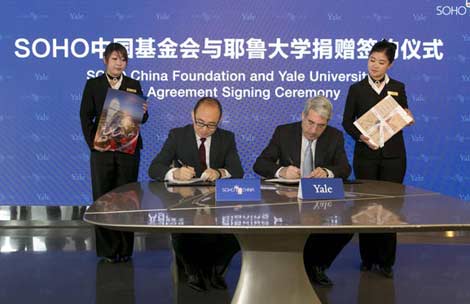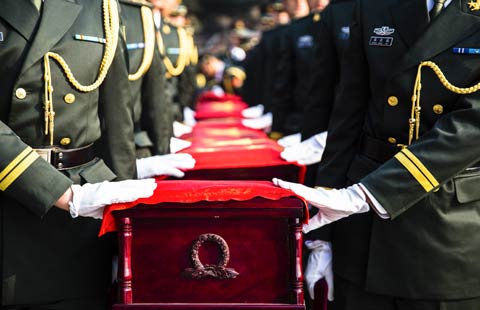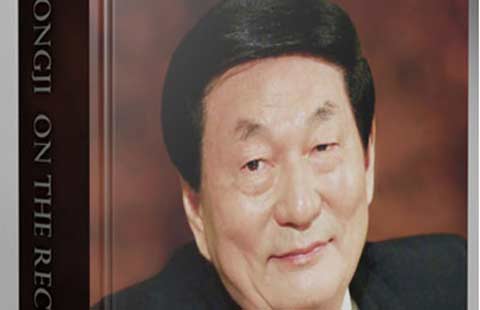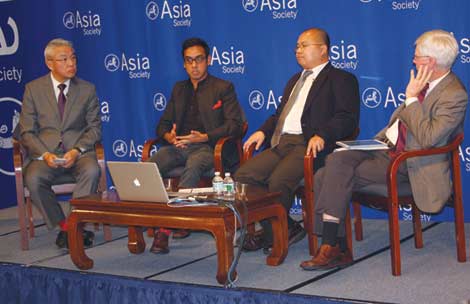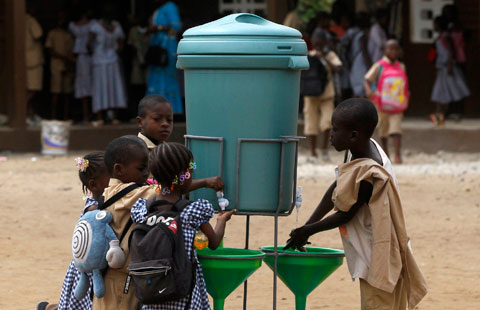US calls for missile defense against DPRK
Updated: 2014-06-04 06:51
By Agencies in Seoul(China Daily)
|
||||||||
The commander of US troops stationed in the Republic of Korea said on Tuesday he has proposed deploying an advanced missile-defense system to the country to counter the growing threat of Pyongyang's weapons capabilities.
In March, the Democratic People's Republic of Korea test-fired a midrange Rodong missile with a range of more than 1,000 km, prompting condemnation from the UN Security Council. The firing is being seen as preparations by the DPRK to conduct a fourth nuclear test.
"I recommended the deployment of the THAAD (Theater High Altitude Area Defense) missiles to South Korea," Yonhap News Agency quoted General Curtis Scaparrotti, the commander of US forces in the ROK, as saying.
The top US military official also acts as the head of the combined command leading the ROK and US forces defending the ROK, which remains technically at war with the DPRK under a truce that ended the 1950-53 Korean War.
The US has carried out a site survey in the ROK for possible locations for the THAAD battery, but no final decisions have been made to deploy the system, media have reported.
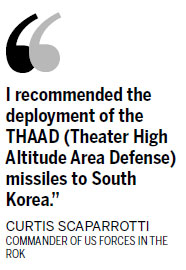
Scaparrotti said Washington had yet to start official discussions with ROK officials over the deployment.
Seoul's Defense Ministry said the country will review cooperation with the US on the deployment once Washington formally makes the proposal.
"I understand the US Defense Department was internally studying (the defense system's deployment). When a formal request for cooperation comes in from the American side, the Defense Ministry will consider it," ministry spokesman Kim Min-seok said at a news conference.
Seoul has so far opted not to be part of the US missile defense partnership that covers the defense of Japan from the DPRK's missile threats.
Instead, it has been developing its own independent anti-missile system, the Korean Air and Missile Defense System, which focuses on a terminal-phase, low-altitude missile defense. Seoul's Defense Ministry has said that the low-tier missile defense system refers to intercepting missiles at an altitude of less than 100 km.
Seoul will upgrade its PAC-2 missiles to Lockheed Martin's PAC-3 to shoot down missiles, possibly launched from the DPRK, at an altitude of less than 40 km, Xinhua reported.
Pyongyang may be closer than previously thought to putting a nuclear warhead on a missile, some experts say, making a mockery of years of UN sanctions to curb such a program.
Washington will not be deterred from plans to strengthen its military position in Asia by emerging threats elsewhere, US Defense Secretary Chuck Hagel has said.
- Xinjiang publishes anti-terror brochures
- Security pact sealed with Afghanistan
- President Xi encourages international cultural exchanges
- Premier Li: China willing to help Afghan infrastructure
- Chinese FM: China, Asia-Pacific become community of shared destiny
- Foreign minister remarks on possibility of China-Japan summit
Most Viewed
Editor's Picks

|

|

|

|

|

|
Today's Top News
VW defends safety of recalled New Sagitar
Former premier makes Hurun philanthropists list
Xinjiang publishes anti-terror brochures
SOHO endows $10m to Yale
Cook and Ma talk about partnership
Language a barrier to healthcare for Asian Americans
China businesses need innovation: VC
Security pact sealed with Afghanistan
US Weekly

|

|
